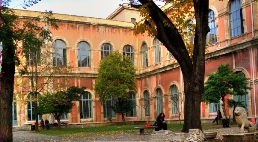|
| Education System in Turkiye |
Primary Education
Education in Turkey is nationally controlled and aimed at producing a professional class of people for the nation. 8 years of primary education are mandatory for children beginning at age 7 and enrolment stands at almost 100%.Middle Education
Secondary Education
From age 14 onwards young people are required to attend secondary school for a further 4 years. There are three types of high schools in Turkey. These are general (academic) schools, science schools, and vocational schools. The first two of these culminate with the National University Entrance Examination, while the latter produce job-ready employees.Vocational Education
Non-formal education in Turkey is available from a network of training centers under overall control of the ministry of education that sets standards. These have several roles including adult literacy and numeracy, completing curtailed school education and helping workers learn new skills.Tertiary Education
Following completion of academic or technical high school, students may apply to enter any one of 118 universities in Turkey, some of which are public and some of which are private. Fees at the former can be exceptionally low, while those of private institutions remain out of reach of poor people without bursaries.
which are public and some of which are private. Fees at the former can be exceptionally low, while those of private institutions remain out of reach of poor people without bursaries. The oldest university still in operation is Istanbul Technical University founded in 1773 as a Naval Engineer’s School. To this day its focus remains technical – it has faculties in architecture, a wide range of engineering disciplines, mining, naval architecture. aeronautics and astronautics.
